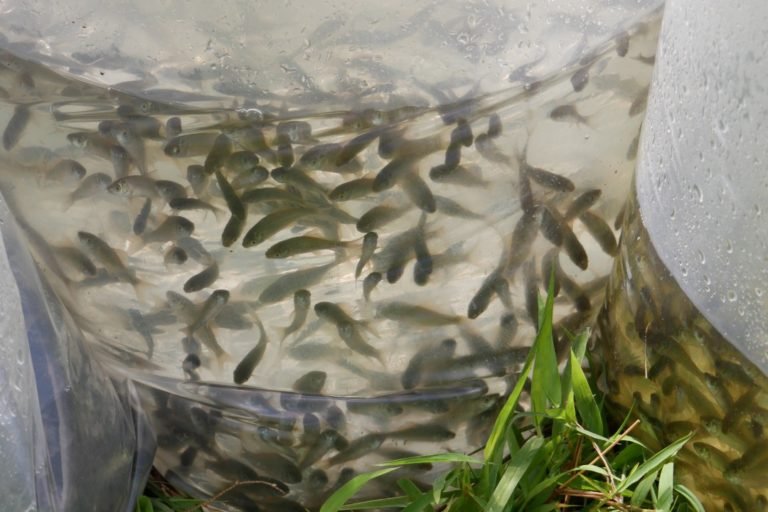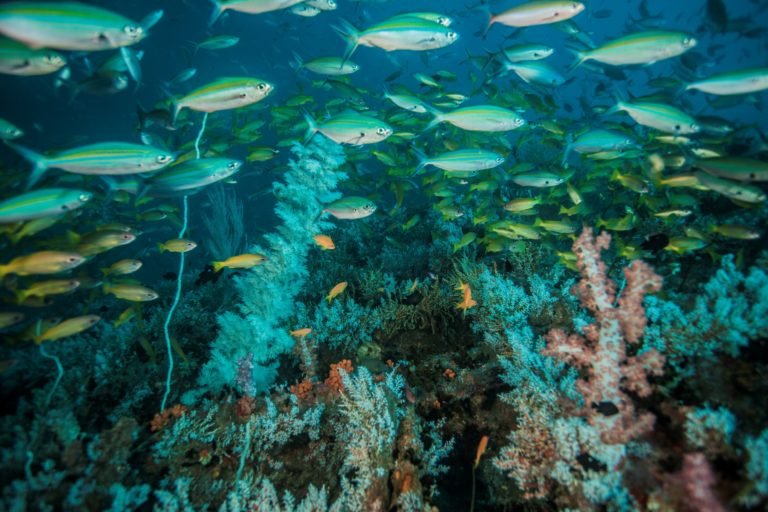- Marine spatial planning in Indonesia over the past 300 years has historically and systematically supported profit-oriented activities at the cost of the ocean ecosystem and coastal communities, a recent paper says.
- Researchers found that little had changed despite decades of attempts to reform marine governance to support more sustainable uses of sea resources in Indonesia.
- They also found that coastal communities, traditional and small-scale fishers had lost much of their control and influence over marine areas, while ruling elites at the national level gradually gained more of it.
- The fisheries sector has long been important to the food security of Indonesia, with most of the country’s more than 270 million inhabitants living in coastal areas.
JAKARTA — Decades of unsustainable marine governance in Indonesia have benefited extractive land-based economic activities, costing the environment and marginalized communities whose livelihoods depend on the ecosystem, a new paper has found.
Marine spatial planning in Indonesia over the past 300 years has been designed systematically to support large-scale infrastructure development and other profit-oriented activities at the cost of the ocean ecosystem, researchers from Indonesia and Australia said in their analysis published June 14 in the journal Marine Policy.
They added that the unsustainable governance of marine resources in the world’s largest archipelago had excluded the values of environmental protection and marginalized coastal communities, leading to the displacement of their lives and livelihoods.
“This dynamic is not unique to Indonesia, and is indeed common in many countries where colonization established institutions that incentivize resource extraction with little to no regard for its social and environmental consequences,” the paper read.
The fisheries sector has long been important to the food security of Indonesia, with most of the country’s more than 270 million inhabitants living in coastal areas. Much of the nation’s fishing fleet today, about 650,000 vessels, is operated by small-scale and traditional fishers. The country straddles the Pacific and Indian oceans, and is home to large parts of the Coral Triangle, the region with the highest coral and reef fish diversity in the world.
The researchers’ analysis of historical policy documents, media reports and public forums found that little had changed despite decades of attempts to reform marine governance to support more sustainable uses in Indonesia. Stakeholders in power who have much to lose and little to gain from reform have long wielded control over marine areas and resisted transformative changes needed for more just sustainable management, the authors added.
“One thing that is actually relevant to many people, by knowing the bigger picture, across sectors and across times, it provides a better understanding of what is happening around us and possibly why,” lead author Naimah Lutfi Talib, a researcher at Australia’s University of Melbourne, told Mongabay in an email.
“Knowing why it is hard to change, or to sustain ‘change for the better,’ just like knowing our history, hopefully, we can have a better idea on how to respond to it,” she added.

The paper shows how the institutional development of marine governance in Indonesia ranges from practices of Indigenous and traditional community governance, to the current government’s national strategic projects and the 2020 Job Creation Law. It found that the uses of the sea transformed from primarily trade, transport and fishing purposes, to large-scale extraction on and through the sea and mega infrastructure in coastal areas.
Talib’s team also described the relative winners and losers over several eras of marine governance in Indonesia in their paper. They found that coastal communities, traditional and small-scale fishers lost much control and influence over marine areas, while ruling elites at the national level gradually gained more. The paper noted that the investor class, both domestic and foreign, currently wield the most control over marine resources in Indonesia.
“While we knew micro-, small-scale, and traditional fishers, including fisherwomen and owners and workers of the ocean-based economy supporting system, were relatively in disadvantaged position within the power relations at this time of our centuries, they were also trying to make the best of what they have and control and able to access, they adapt and innovate through their own way,” Talib said.
“What is crucial to me, is, while they are in a less or disadvantaged situation relative to the overall system, their agency is showing,” she added.
Despite the deeply ingrained imbalance in the country’s unsustainable marine governance, Talib said she remained “cautiously optimistic” that Indonesia could collectively reform institutions and policies to benefit the environment and coastal communities more.
“Changing these institutions requires new sets of ideas and coalitions of actors powerful enough to supplant those who make the rules,” she and her colleagues wrote.

Citation:
Talib, N. L., Utomo, A., Barnett, J., & Adhuri, D. S. (2022). Three centuries of marine governance in Indonesia: Path dependence impedes sustainability. Marine Policy, 143, 105171. doi:10.1016/j.marpol.2022.105171
FEEDBACK: Use this form to send a message to the author of this post. If you want to post a public comment, you can do that at the bottom of the page.













